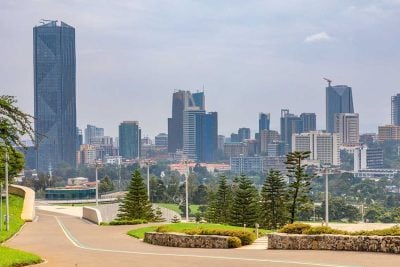After a turbulent 2023–24, when venture capital in Africa dipped to multi-year lows, the 2025 story is turning more optimistic. The continent’s start-ups are once again attracting investors, sectors such as fintech and clean energy are securing large funding rounds, and private capital is finding more viable exit routes. Yet the bigger question remains: how much difference does this renewed deal flow make to jobs and long-term development?
A market on the rebound
The numbers tell a clear story. African start-ups raised around US$1.42 billion across 243 deals in the first half of 2025, representing a striking 78% year-on-year increase. By the end of the third quarter, disclosed totals had already reached between US$2.2 billion and US$2.8 billion, surpassing or matching the entire 2024 total, which had struggled to cross the US$1.3 billion mark.
Month by month, the rebound was uneven but clearly trending upward. In the first quarter of 2025, about US$460 million was raised. April saw US$343 million, followed by US$254 million in May, and June reached US$365 million—the highest month of the first half. This volatility reflects both Africa’s smaller deal base and the lumpiness of mega-deals, but the direction is unmistakably positive. Investors who had been cautious after the global venture capital slowdown are now re-entering the market.
Fintech still king, energy rising
Fintech remains the heavyweight, drawing approximately US$639 million—around 45% of the first-half total. This dominance is hardly surprising in a region where mobile money, digital banking, and payment platforms continue to expand rapidly.
However, 2025 also tells a story of diversification. Energy and water ventures raised about US$219 million, as investors backed mini-grids, pay-as-you-go solar systems, and energy-storage start-ups tackling Africa’s chronic power shortages. Healthcare attracted roughly US$159 million, logistics and transport about US$114 million, while housing and urban services brought in around US$75 million. Together, fintech, energy, and health accounted for 71% of all capital deployed in the first half. Observers also note a rising share of venture debt deals, as founders seek less dilutive financing options amid still-tempered valuations.
The oxygen of venture
Behind the rebound in deal activity lies a quieter but crucial development: exits and fresh fundraising. In 2024, Africa recorded 63 private capital exits, up 47% from 2022, signalling that liquidity is returning. Investors also closed about US$4.0 billion in Africa-focused private capital funds that year, the third-highest total in a decade.
This matters because exits recycle capital and validate valuations, while new funds ensure there is sufficient dry powder for future deals. Without these twin dynamics, venture ecosystems risk stalling. The evidence suggests that 2024 laid the groundwork and that 2025 is now reaping the benefits.
Critics often argue that too much attention is paid to how much money start-ups raise, as if capital itself were the product. Yet in Africa, where capital markets remain thin, external funding remains a genuine growth catalyst. According to the International Finance Corporation, the continent counted nine unicorns—companies valued above US$1 billion—as of March 2025, eight of which are in fintech. Still, entire sectors, particularly agriculture and manufacturing, remain undercapitalised.
Moreover, macroeconomic headwinds such as currency depreciation and limited local pools of capital mean international venture dollars continue to play an outsized role. In this context, raising capital is not an act of vanity—it is often a matter of survival and scale.
The most pressing development question is whether this surge in capital translates into employment. Reliable, continent-wide jobs data for 2025 remains scarce, but available snapshots offer useful insight. In Nigeria, funded start-ups had generated over 19,000 direct jobs by 2022, nearly half of them in fintech. In Egypt, some 11,000 jobs were supported by 131 funded start-ups in the same year. More broadly, the mobile ecosystem directly employed 1.5 million people across sub-Saharan Africa in 2023, creating a vast pool of related opportunities.
These figures underline that while venture-backed firms are not the continent’s largest employers, they punch above their weight in creating skilled, high-productivity roles. They also generate indirect employment through supply chains, services, and the wider digital economy.
Broad-based prosperity
Africa’s venture story in 2025 is one of cautious resurgence. Funding flows are back, exits are occurring, and sectors critical to the continent’s future—energy, health, logistics—are rising alongside the ever-resilient fintech giants. But the ultimate test lies not in billion-dollar headlines, but in job creation, infrastructure development, and broader development outcomes. On those fronts, progress is visible yet uneven. The next challenge for Africa’s venture ecosystem is to prove that the capital raised translates not just into unicorns, but into broad-based prosperity.
Want to continue reading? Subscribe today.
You've read all your free articles for this month! Subscribe now to enjoy full access to our content.
Digital Monthly
£8.00 / month
Receive full unlimited access to our articles, opinions, podcasts and more.
Digital Yearly
£70.00 / year
Our best value offer - save £26 and gain access to all of our digital content for an entire year!

 Sign in with Google
Sign in with Google 



